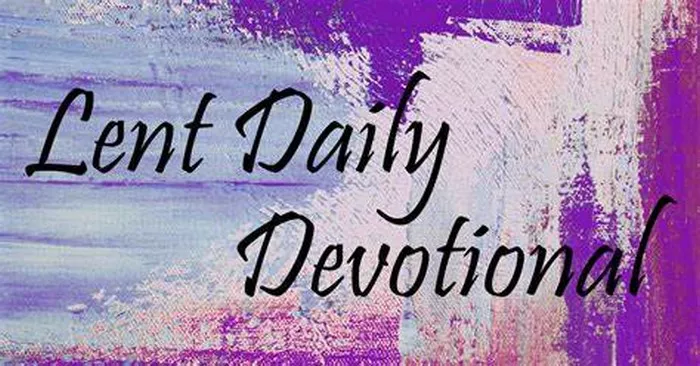Lent is a significant period in the Christian liturgical calendar observed by various denominations, including Catholicism, Orthodoxy, Anglicanism, and Protestantism. This season holds profound spiritual importance, marked by practices of fasting, prayer, and penance. In this comprehensive article, we delve into the full meaning of Lent, its historical origins, theological significance, and contemporary practices across different Christian traditions.
Historical Origins of Lent
The origins of Lent can be traced back to the early centuries of Christianity. The word “Lent” itself derives from the Old English word “lencten,” meaning springtime, and the Latin word “quadragesima,” denoting forty days. The forty-day period mirrors significant biblical events such as Jesus’ forty days of fasting and temptation in the wilderness (Matthew 4:1-11, Luke 4:1-13) and Moses’ forty days spent on Mount Sinai (Exodus 24:18).
Early Christians observed shorter periods of fasting before Easter, but it wasn’t until the Council of Nicaea in 325 AD that a more standardized Lenten observance began to take shape. The Council formalized 40 days of fasting to prepare for Easter, excluding Sundays, which were seen as celebrations of the Resurrection.
The Theological Significance of Lent
Lent holds deep theological meaning for Christians worldwide. It is primarily viewed as a season of repentance, reflection, and preparation for the celebration of Easter, the central event of the Christian faith—the Resurrection of Jesus Christ. The period symbolizes the forty days Jesus spent fasting in the desert, overcoming temptations, and preparing for his public ministry.
Central to Lenten theology is the concept of metanoia, a Greek word meaning “change of mind” or “repentance.” It calls for a spiritual transformation—a turning away from sin and a turning towards God. This theme is echoed in the traditional practices of prayer, fasting, and almsgiving observed during Lent.
Key Themes and Symbols of Lent
Lent encompasses several key themes and symbols that enrich its meaning and observance:
Repentance and Forgiveness: Lent is a time to acknowledge sinfulness, seek forgiveness, and reconcile with God and others.
Fasting and Self-Denial: Fasting during Lent symbolizes self-discipline, solidarity with the poor, and a spiritual hunger for God.
Prayer and Spiritual Growth: Increased prayer during Lent fosters spiritual growth, deeper communion with God, and discernment of God’s will.
Almsgiving and Charity: Generosity towards others, particularly the needy, reflects the Christian call to love and serve one another.
Lenten Practices Across Christian Traditions
While Lent is universally observed by Christians, specific practices can vary among denominations:
Catholicism: Catholics abstain from meat on Ash Wednesday and Fridays during Lent, fast on Ash Wednesday and Good Friday, and often give up a particular pleasure or habit throughout the season.
Orthodoxy: Orthodox Christians observe a stricter fasting regimen throughout Lent, abstaining from meat, dairy, fish, oil, and wine on specific days.
Anglicanism: Anglicans observe Lent with fasting, increased prayer, and devotion, often incorporating the Stations of the Cross and other liturgical practices.
Protestantism: Protestants approach Lent with diverse practices—some emphasize personal repentance and reflection, while others incorporate community service and Bible study.
SEE ALSO: How to Write a Lenten Devotional? A Step-by-Step Guide
The Lenten Journey: Reflection and Transformation
Lent invites Christians on a journey of spiritual renewal and transformation. The forty-day period is structured to mirror Jesus’ journey to Jerusalem, where he would ultimately face crucifixion and resurrection. This journey unfolds through three distinct phases:
Ash Wednesday: Marks the beginning of Lent, where ashes are imposed on foreheads as a sign of repentance and mortality. The traditional words spoken are “Remember that you are dust, and to dust you shall return.”
The Lenten Fast: A period of self-denial and discipline, reflecting Jesus’ fasting in the desert. It serves to heighten spiritual awareness, deepen prayer life, and foster solidarity with the poor and marginalized.
Holy Week: The culmination of Lent, beginning with Palm Sunday (commemorating Jesus’ triumphal entry into Jerusalem) and concluding with Easter Sunday, celebrating Christ’s resurrection. Holy Week includes solemn services such as Maundy Thursday (commemorating the Last Supper) and Good Friday (observing Jesus’ crucifixion).
Contemporary Perspectives on Lent
In modern times, Lent continues to hold relevance and resonance for Christians around the world. Beyond its traditional practices, contemporary perspectives on Lent emphasize:
Ecumenical and Interfaith Dialogue: Lent provides opportunities for Christians to engage in dialogue and cooperation with people of other faiths and denominations.
Social Justice and Advocacy: Many Christians use Lent as a time to advocate for social justice issues such as poverty alleviation, environmental stewardship, and human rights.
Digital and Virtual Practices: With the advent of digital media, Lenten devotionals, prayer apps, and virtual church services have become increasingly popular, enabling broader participation and engagement.
Conclusion
Lent remains a profound and sacred season in the Christian calendar, rich with theological depth and spiritual practices that foster repentance, reflection, and renewal. Across diverse denominations and cultures, Christians embark on this forty-day journey as a time of preparation and transformation, leading to the joyous celebration of Easter—the cornerstone of the Christian faith. As we continue to navigate the complexities of the modern world, Lent stands as a timeless reminder of the enduring message of hope, redemption, and the boundless love of God.
In exploring the full meaning of Lent—from its historical origins to its contemporary practices—we deepen our understanding of its significance and reaffirm its enduring relevance in the lives of believers today.

